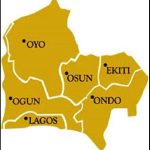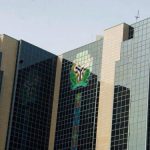
The Chartered Institute of Bankers of Nigeria’s 59th annual dinner recently held in Lagos presented a great opportunity for the Olayemi Cardoso-led Central Bank of Nigeria to present an outlook for key sectors of the economy.
The CBN boss acknowledged that the ongoing economic reforms undertaken over the past year had been both challenging and essential.
He had one year ago shared with the same audience—that through targeted policies, transparent market operations, effective coordination between monetary and fiscal authorities, and a commitment to rebuild trust, the CBN under his leadership would stabilise the exchange rate, curb inflation, strengthen banks’ capital buffers, and foster an environment conducive to the success of both businesses and individuals.
Cardoso further highlighted that over the past 12 months, the key actions he had taken to prioritise price and exchange rate stability, catalyse sustainable economic growth, and protect the livelihoods of millions of Nigerians, as well as outline our priorities for 2025.
“I want to assure you that at the central bank, every decision we make is driven by a commitment to serving the best interests of the people. This is why we will continue strengthening our internal capacity and processes to ensure our decisions remain firmly rooted in evidence-based analysis,” Cardoso said.
New indicators show a positive outlook for the economy. They include the gradual inflation decline, growth in gross domestic product, a narrowing gap between the official and parallel market exchange rates, and clearance of over $7bn FX backlogs, to mention but a few.
Financial analysts and experts have assessed these milestones and came up with a summary verdict that under his leadership, better days are ahead for the economy.
Cardoso assumed the leadership of the CBN at a time when key economic indicators were pointing southwards. The economy faced a stockpile of debts of more than $108.2bn, maturing obligations, misaligned currency with over N22tn printed bank notes stoking inflation, high interest rates, foreign direct investment draught, and an acute dollar shortage.
According to National Bureau of Statistics data, Nigeria recorded N35.16tn in total trade in the third quarter of this year, N14.67tn of which was import, and N20.48tn export, creating a trade surplus of N5.81tn.
The NBS data further showed that export trade through crude oil export stood at N13.4tn, non-crude oil export stood at N7.08tn and non-oil export was N2.5tn.
Nigeria’s GDP also grew by 3.46 per cent year-on-year in real terms during the third quarter, signalling a notable increase from the 2.54 per cent growth recorded in the corresponding period of 2023 and an improvement from the 3.19 per cent growth observed in the second quarter of this year.
The performance of the GDP in the third quarter of 2024 was driven mainly by the services sector, which recorded a growth of 5.19 per cent and contributed 53.58 per cent to the aggregate GDP.
The intention is to, in the medium to long term, promote exports and de-emphasise imports.
Revamping the economy and turning the above negative economic indicators around within his first year in office was by no means a simple task.
Against all odds, Cardoso courageously started a series of bold reforms, many considered long overdue. The reforms were unveiled, and their implementation took off immediately, including exchange rate unification.
The exchange rate reforms directed by President Tinubu saw Cardoso unifying all multiple rates into the Investors’ and Exporters’ Forex Window.
That policy required that all applications for medicals, school fees, business travel allowance/personal travel allowance, and SMEs would continue to be processed through the I&E window. The operational changes to the foreign exchange market also include the re-introduction of the “Willing Buyer, Willing Seller” model at the I&E Window.
The Chief Executive Officer of the Centre for the Promotion of Private Enterprise, Muda Yusuf, said that Cardoso had done fairly well in his first year in office.
According to Yusuf, there has also been much better stakeholder engagement, especially within the banking community that is between the apex bank and the banking community, and the level of communication has improved.
The level of communication has improved under the new regime of the apex bank. The fact that one of the first things that CBN did under Cardoso was to ensure the clearing of the forex backlog to the tune of $7bn. That was very good, at least, to bring confidence back to the market. The liberalisation of the market has also helped a great deal to encourage inflows of forex into the market.
The exchange rate unification reforms came with significant goals, chief of which were to eliminate distortions and restore transparency in the forex market.
Some of the achievements of the exercise were that it helped the CBN to clear pending forex obligations and helped key businesses, including manufacturers, airlines, and agriculture, to gain confidence that enabled them to plan and invest in the future of their operations.
Furthermore, the introduction of the electronic FX matching system, which has proven effective in other markets, enhances the functionality of the forex market in the country. The reviewed FX guidelines are to boost transparency and governance in the foreign exchange market and provide the needed confidence to domestic and foreign operators.
For instance, these guidelines’ goals include achieving ethical practices, real-time reporting, and regulated interbank trading while mandating compliance from banks, dealers, and BDC operators.
Separately, the naira has appreciated steadily, supported by increased dollar inflows and the launch of the Electronic Foreign Exchange Matching System, which has boosted market confidence by facilitating transparent and efficient FX transactions.
Cardoso and his team have over time achieved a stable exchange rate, curbing inflation, strengthening banks’ capital buffers, and fostering an environment conducive to the success of both businesses and individuals.
To ensure these goals are achieved, the CBN leadership has in the past year rolled out several measures, which include monetary policy tightening meant to tackle inflation by raising the Monetary Policy Rate and Cash Reserve Ratio by 850 basis points and 12.5 percentage points to 27.5 per cent and 45 per cent, respectively.
The apex bank team also lowered the loan-to-deposit ratio by 15.0ppts to 50 per cent creating significant mileage that ignited the ongoing naira rally.
In a major push to boost forex availability in the economy, the apex bank authorised international oil companies operating in Nigeria to sell 50 per cent of bulk FX proceeds at the domestic forex market. The other 50 per cent of FX proceeds are to be sold after 90 days.
The Managing Director of Financial Derivatives Company Limited, Bismark Rewane, projected that the economy would begin to recover from the toughest phase of its reform adjustments by 2025, emphasising the importance of strategic policy implementation and institutional reforms.
He noted that while the fundamentals of Nigeria’s exchange rate indicate that the naira should be stronger, achieving stability depends on an efficient and effectively managed FX system.
He also underlined the critical role of investment in driving economic growth, adding that revenue alone is not enough.
Looking ahead to 2025, Rewane called attention to persistent challenges, such as power supply inefficiencies and the lack of transparency in the oil and gas sector, which require immediate attention through structural reforms.
For 2025, the Director-General/CEO of the Lagos Chamber of Commerce and Industry, Chinyere Almona, identified high energy costs as a major driver of inflation and stressed the need to resolve power supply issues to stabilise prices.
The CEO of NGX Regulation Limited, Olufemi Shobanjo, discussed the role of liquidity in capital markets, calling for more initiatives that enhance investor confidence and ensure market stability in the new year.
The Executive Director of Parthian Group, Yemi Sadiku, highlighted the need for an enabling environment to attract infrastructure investment, urging the government to create policies that encourage private sector participation.
Other analysts believe the exchange rate rally is an indication of better days ahead for the economy, even as improved flexibility in exchange rates and increased capital inflows offer signs of stabilisation for the overall economy.
Other analysts asked the CBN to match words with action in the new year by sanctioning banks for poor service quality and failure to load cash at Automated Teller Machine points.



